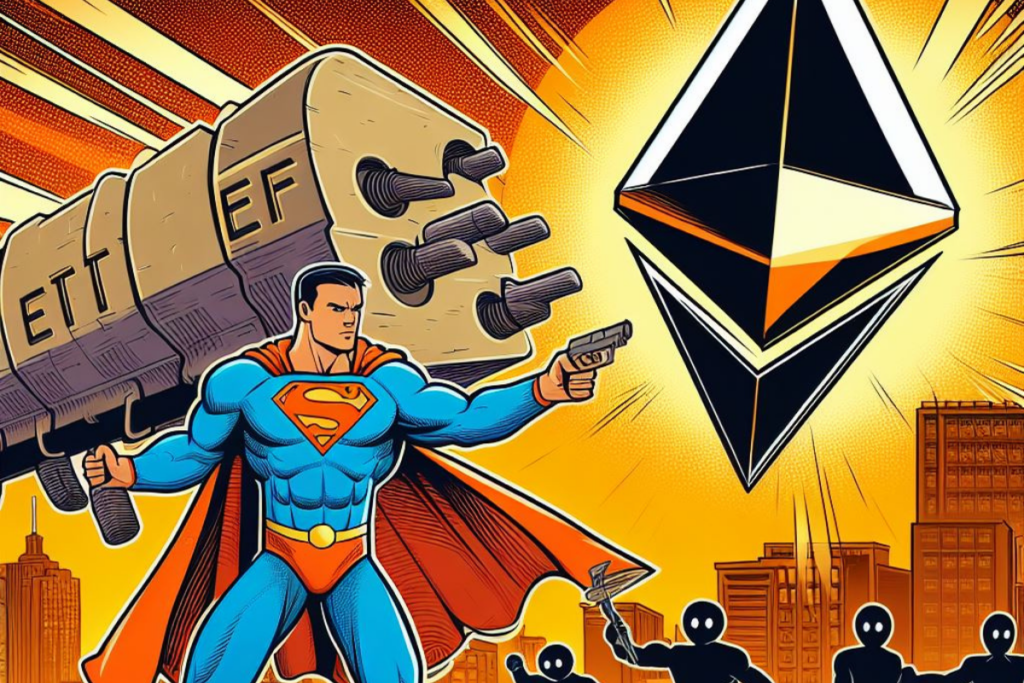10:34pm
Four
Takes a few minutes to read ▪
Crypto experts have warned that centralization concerns following the approval of an Ethereum spot ETF in the United States could lead to “serious” security risks, especially if staking is integrated.

The issuer of the Ethereum ETF had to remove the clause regarding staking of customers' ETH to ease the approval process, but the decision could have long-term implications on the security of the network.
Since the transition to Proof of Stake in September 2022, validators have to lock up ETH in a process called staking. Validators are rewarded for securing the network but are penalized for poor performance.
Issues with centralization have already emerged when some validators seized large amounts of staked ETH, with some likening liquidity provider Lido to a “cartel.”
Covalent CEO Ganesh Swami explained to Decrypt:The removal of the staking provisions in the ETH ETF approval application was intended to appease the SEC, but this short-term solution could create a long-term problem: if multiple ETFs use the same custodian, it would increase concentration and expose the network to operational risks such as malicious collusion.“
Lack of regulation and potential risks
The US Spot Bitcoin ETF already presents a risk of centralization, with Coinbase holding 90% of the total assets. Adding staking could make things even worse. Andrew O'Neill of S&P Global noted that the ETF could pose a risk of cryptocurrency validator centralization if it concentrates participation in a small number of custodians.
Coinbase, the second-largest Ethereum validator, is expected to be the custodian of six of the nine companies planning to launch Ethereum ETFs. If there is any frenzy similar to that of the Bitcoin ETF, this concentration of power could threaten the security of the network.
Mona El Issa of Avant-Garde Finance explains:Concentration risk can be measured by the number of nodes required for a single entity to control the chain: the lower this number, the higher the single point of failure.“
The SEC considers staking to be a securities service, which is why it was removed from Ethereum ETF applications. However, the agency has not laid down guidelines to mitigate the risks of centralization and concentration without staking. The SEC has already sued Kraken and Coinbase, trying to stop them from offering staking services to US customers.
As such, cryptocurrency experts are calling for increased vigilance around Ethereum ETFs to avoid significant security risks. It is important that regulators and industry players work together to develop clear guidelines aimed at mitigating these potential risks and ensuring the long-term security of the Ethereum network.
Make the most of your Cointribune experience with our “Read to Earn” program. Earn points for every article you read and get access to exclusive rewards. Sign up now and start earning rewards.
Click here to join Read to Earn and turn your crypto passion into rewards!
Passionate about Bitcoin, I love exploring the world of blockchain and cryptocurrencies and sharing what I discover with the community. My dream is to live in a world where private life and financial freedom are guaranteed for everyone, and I believe Bitcoin is the tool that will make this possible.
Disclaimer
The views, thoughts and opinions expressed in this article are those of the author and should not be taken as investment advice. Please conduct your own research before making any investment decisions.

